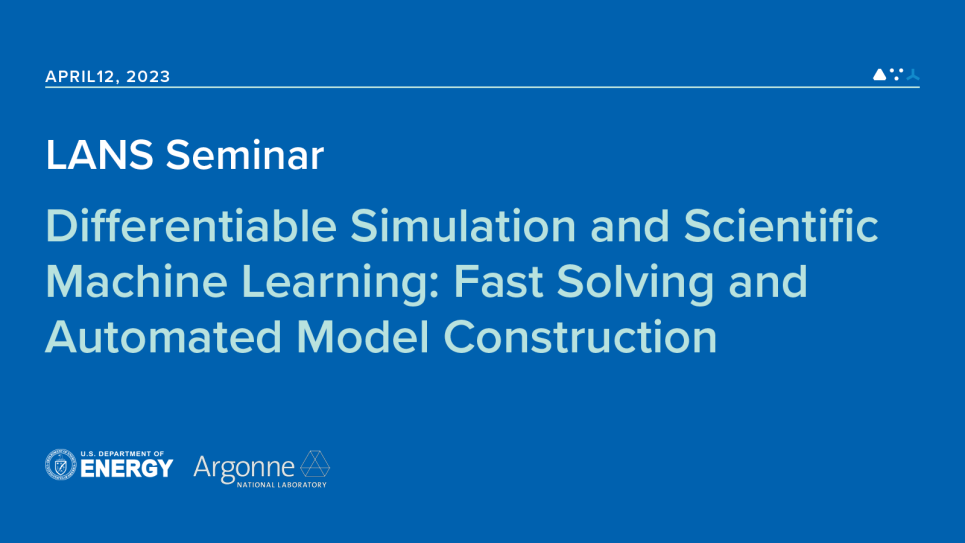
Differentiable Simulation and Scientific Machine Learning: Fast Solving and Automated Model Construction
Scientific machine learning (SciML) methods allow for the automatic discovery of mechanistic models by infusing neural network training into the simulation process. In this talk we will start by showcasing some of the ways that SciML methods, like universal differential equations, are being used. Demonstrations of the automated discovery of relativistic corrections to black hole physics to the construction of earthquake-safe buildings showcase the successes of the techniques throughout scientific domains. From there, we will discuss some of the increasingly advanced computational techniques behind the training process, focusing on the numerical issues involved in handling differentiation of highly stiff and chaotic systems. We will then show how the solutions to these numerical issues are being productionized in industry, explaining how these computational techniques led to improved trajectory planning in track-side computers for Formula 1 races, accelerated the clinical trials of the Covid vaccine, and allowed for crash testing computers to predict forces in a way that saved days of customer time on multi-million dollar machines. The audience will leave with an understanding of how these latest compiler techniques are being infused into the next generation simulation stack to increasingly automate the process of developing mechanistic models and industrial processes.
Speaker Bio: Dr. Chris Rackauckas is the VP of Modeling and Simulation at JuliaHub, the Director of Scientific Research at Pumas-AI, Co-PI of the Julia Lab at MIT, and the lead developer of the SciML Open Source Software Organization. For his work in mechanistic machine learning, his work is credited for the 15,000x acceleration of NASA Launch Services simulations and recently demonstrated a 60x-570x acceleration over Modelica tools in HVAC simulation, earning Chris the US Air Force Artificial Intelligence Accelerator Scientific Excellence Award. See more at https://chrisrackauckas.com/. He is the lead developer of the Pumas project and has received a top presentation award at every ACoP in the last 3 years for improving methods for uncertainty quantification, automated GPU acceleration of nonlinear mixed effects modeling (NLME), and machine learning assisted construction of NLME models with DeepNLME. For these achievements, Chris received the Emerging Scientist award from ISoP.
See all upcoming talks at https://www.anl.gov/mcs/lans-seminars